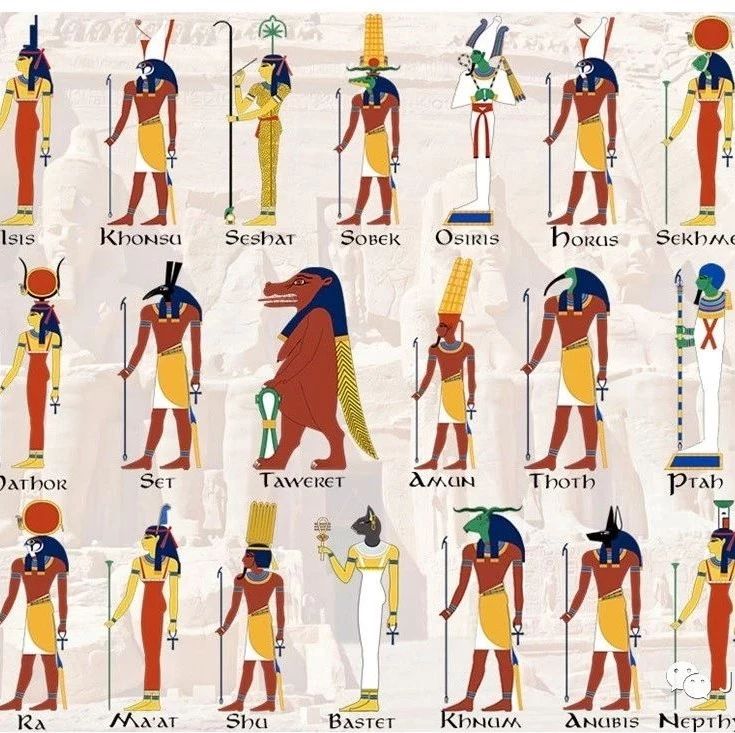Read History with Jack 7 - Ancient Egypt Religion II
古埃及宗教 2
古埃及是一个信奉多神的国家,并且笃信来世的存在。为了为来世的生活做准备,法老、贵族、和底层人民建了许多金字塔、坟墓、和神庙,并且研究出了复杂的防腐技术。虽然宗教对古埃及的政治、经济、和文化方面都有一些正面的影响,但负面的影响依然是存在的。
因为法老相信一个死后的世界,他们就为自己建了许多宏伟庞大的建筑和雕像。但是修建这些东西消耗了大量古埃及的人力、财力、和物力,导致经济方面出现了一些严重问题。法老们应该把更多的时间和金钱花费在加强国力,改善百姓生活方面,而不是过度关注宗教信仰与自己的死后世界。宗教在这方面的消极影响是导致古埃及最终衰亡的重要原因。
另外,法老和贵族们用一些宗教方面的信仰来限制和奴役老百姓的思维。法老们让所有底层人民相信他是神的化身,所以理应受到崇拜和遵从。我认为,法老的做法很不理智,因为这样底层人民一直处于蒙昧的状态,人们思维僵化,科技无法创新,社会不能进步,国家发展失去动力。
太过于相信宗教限制了古埃及的所有人包括法老们的开拓与探索精神。正是因为古埃及人太相信宗教,所以他们才会用一些不科学,不可靠的方式来解决问题。这就意味着古埃及的创新发展速度会变得特别慢,最终被赶超。然而,如果古埃及人乐意去探索新的东西,这个伟大的文明将会在历史的舞台中站立的更加稳固与长久。
宗教在古埃及的确起到了一些很好的影响和作用。古埃及文明的伟大一部分是因为他们笃信宗教。金字塔,神庙,方尖碑等等全是古埃及人宗教思想的一些结晶,给世界留下了很多宝贵的遗产。而且,古埃及人是由一个信奉宗教的上层阶级来统治的,因此我们不能断言宗教的产生对这个国家毫无作用,因为这的确是他们民族团结和发展的一个重要动力。然而,上述所说的宗教的负面作用也深深的影响着这个古老的国家,导致这个国家的伟大文明慢慢的被宗教的负面力量所吞噬。
Ancient Egypt Religion II
Ancient Egypt was a polytheistic country and they believed deeply in the existence of an afterlife. To prepare for life in the underworld, the Pharaohs, aristocrats, and citizens built Pyramids, tombs, and temple, and developed the process of mummification. Even though the religion had positive influences on the country’s politics, economy, and culture, bad influences also abounded.
Because the Pharaohs believed in a world after they died, they built massive structures for themselves. But building these structures consumed too much manpower and material resources, which burdened the economy heavily. The Pharaohs should have spent more time in enhancing the country’s strength through political action and by improving the lives of the citizens, instead of continuously focusing on religious beliefs. This mismanagement partially caused Ancient Egypt’s decline in power and eventual fall. Religion played a negative role, here.
In addition, the Pharaohs and aristocrats restricted and enslaved people’s thoughts due to religious reasons. The Pharaoh allowed citizens to believe that he was the reincarnation of god and worship him or her as well. In my opinion, this was very bad and negative because citizens wouldn’t dare to voice their opinions on religion and other issues which could make the country a better place.
Moreover, believing too much in religion would restrict the Pharaohs, aristocrats, and citizens’ spirit of discovery. Because the Ancient Egyptians believed too much in religion, they tended to use unreliable and religious ways to solve an issue or to do anything. This meant that Ancient Egyptian’s innovate spirit may have been decreased and hampered the development of their technology at a certain stage. However, if the Ancient Egyptians burned the midnight oil to try new scientific methods, they could have stayed ahead of other civilizations for much longer than they did. Therefore, religion could well have restricted the people’s thoughts and imagination which would be a very negative influence on their development.
Admittedly, I am not denying that religion was also a good influence on Ancient Egypt. After all, the greatness of the civilization of Egypt could be partially attributed to their devotion to religion, since most of the sites we have discovered were related to their beliefs and gods. And the whole country was run by an upper class that believed deeply in their religion. Therefore, we cannot assert that the creation of religion was a complete a waste of energy and time, because it was a vital part of their civilization. However, the Pharaohs and aristocrats shouldn’t have spent so many resources on religion. The whole country was a system that should have been run with other aspects in mind, not just religion and deified autocracy.

- 本文标签: 原创
- 本文链接: http://www.jack-utopia.cn//article/541
- 版权声明: 本文由Jack原创发布,转载请遵循《署名-非商业性使用-相同方式共享 4.0 国际 (CC BY-NC-SA 4.0)》许可协议授权










